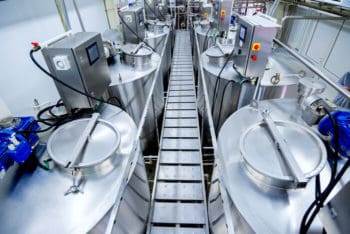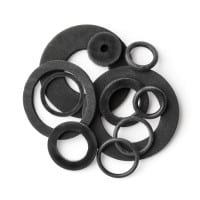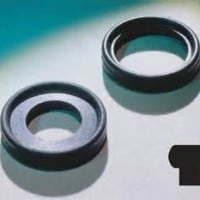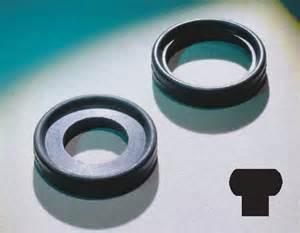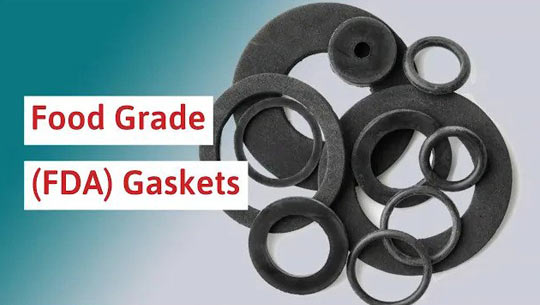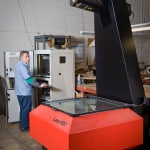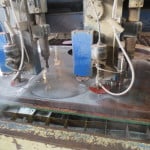Food grade gaskets play a vital role in consumer safety, helping to maintain the sterility of consumable products. Manufacturers typically utilize these gaskets across a wide range of food-production applications to prevent contamination.
One of the most important applications for gaskets is food production; compromising the safety of food and beverages can threaten entire populations. Recent outbreaks of E. coli and other bacteria have forced companies to recall their products to prevent widespread illnesses or even death for some consumers.
For compliance and safety, companies need gaskets that adhere to the strictest FDA and USDA guidelines. A specialized rubber gasket ensures no food or beverage is contaminated during any process condition. These gaskets are fabricated from materials that maintain the highest levels of sterility.
Food grade gaskets offer a fair amount of flexibility compared to gaskets manufactured for other industries. At our ISO 9001:2015-certified facilities, we offer the following methods of gasket cutting:
- CNC Waterjet Cutting
- Die Cutting
- CNC Laser Cutting
- Knife Cutting
At Mercer Gasket, we have been specializing in the production of custom precision gaskets for 100 years. Our engineers work closely with every client to assist in the entire production process, including material selection, computer-aided design, and computerized reverse engineering. Over the years, our clients have continually trusted us to provide high-quality gasket solutions for even the most challenging projects.
Types of Food Grade Gasket Materials
There are a variety of food grade rubber gasket material options, each with its own unique characteristics.
Silicone
For applications requiring exposure to extreme heat, silicone is a popular option. It can withstand temperatures of up to 450° F, while still functioning well in temperatures as low as -67° F. This material is often translucent, but it is also available in gray, white, and red. Read More
PTFE/Teflon
Like silicone, PTFE offers high levels of temperature resistance. It also provides significant anti-abrasion and anti-stick properties. This synthetic fluoropolymer is very malleable, and it is often one of the most desirable materials for food grade gaskets. Read More
EPDM Rubber
Ideal for situations requiring exposure to the elements, EPDM rubber is resistant to UV light and doesn’t break down in extreme weather. As such, it is a popular choice for food production in agricultural settings such as grain silos. This material is both flexible and strong, and it holds up well even when exposed to oily substances. EPDM rubber is typically black in color and provides reliable service in temperatures of -40° F to 250° F.
Nitrile (NBR, Buna-N)
One of the biggest strengths of FDA Nitrile Rubber is its resistance to oil. This is particularly beneficial in the food industry since it will function well even when exposed to greasy or oily foods, particularly vegetable oils and animal fats. Nitrile can withstand temperatures ranging from -40° F to 212° F. It is most often available in black or white color options.
Choosing the Best Gasket Design and Materials
When compared to gaskets manufactured for the pharmaceutical industry, gaskets for the food and beverage sector have incrementally greater flexibility in design. Pharma regulations indicate that no substitutions can be made in gasket production; however, food industry gaskets can be designed with material substitutes for certain applications.
Even so, the materials for the vast majority of food and beverage gaskets have been predetermined by industry customers. While gasket manufacturers are ready and willing to provide advice, most clients select the materials they need according to size, temperature, application, media, and pressure (STAMP).
One of the most frequently used gasket types in food production is the PTFE gasket, or Teflon® gasket. Known throughout many industries for its dielectric and non-stick properties, most PTFE resins are FDA-approved for food-related applications. Other frequently used materials for food and beverage gaskets include silicone and EPDM rubber. Mercer stocks a full line of sanitary gaskets and we are also able to create many other custom gaskets using the materials above.
Compliance for Quality
Every gasket-purchasing client needs to know their products can be delivered at the highest quality standards and without contamination. Manufacturers need to ensure contamination-free products, but the need for confirmable quality assurance goes beyond that.
Gaskets and seals for the food and beverage industry need to follow strict governmental regulations and industry standards, including:
- Food & Drug Administration (FDA). The FDA publishes regulations that include which manufactured materials can come in contact with food and beverage products.
- United States Department of Agriculture (USDA). This organization oversees packaging materials and equipment used in meat and poultry processing.
- United States Pharmacopeia (USP) Class VI. A non-governmental organization, the USP sets high standards for materials used in food and beverage processing. Class VI compounds meet the tightest requirements for non-toxicity.
Contact Us for Quality Custom Gaskets for the Food and Beverage Industry
To prevent contamination of consumables both during and after production, it is imperative to utilize high-quality FDA gaskets. Working with expert engineers streamlines this process, ensuring that you will receive products and materials that are suited to your unique needs.
At Mercer Gasket, we work at the highest levels of quality available in the industry. We are fully ISO 9001:2015 certified, ensuring that every gasket we produce meets the most stringent industrial standards and governmental regulations. Our experience in producing gaskets for the food and beverage industry extends back 20 years.
Not only do we offer gaskets in a full range of FDA- and USDA-approved materials, but we also work with customers to maintain an inventory that meets their specific requirements. Maintaining these inventories allows our clients to rest assured that their specific gasket material will be available upon request and ready for delivery. For additional material needs, our in-house group of sourcing experts can assist in selecting and procuring the necessary products for your project.
For more information about our extensive experience and expertise in producing gaskets for the food industry, please contact us or request a quote today.

